A paralysed woman told she was too disabled to play wheelchair tennis after a devastating accident will be going for gold for ParalympicsGB in Tokyo
A woman who was told she was too disabled to play wheelchair tennis will be slamming backhands for the British team in Japan next month at the Tokyo Paralympics.
A badminton whizz until a motorbike accident, aged 21, left her paralysed from the chest down, Lucy Shuker, 41, was inspired to become a tennis ace when she bought a wheelchair in 2002 from the famous wheelchair tennis star, Peter Norfolk, 60.
Now Lucy, who lives in Wimborne, Dorset, with her partner, Amy Cowd, 37, is at the top of her game and, with two bronze Paralympic medals under her belt, is going for gold for ParalympicsGB in Tokyo, saying: “I’m the most disabled person representing Great Britain there and I’ve got my sights firmly set on winning a gold medal.”
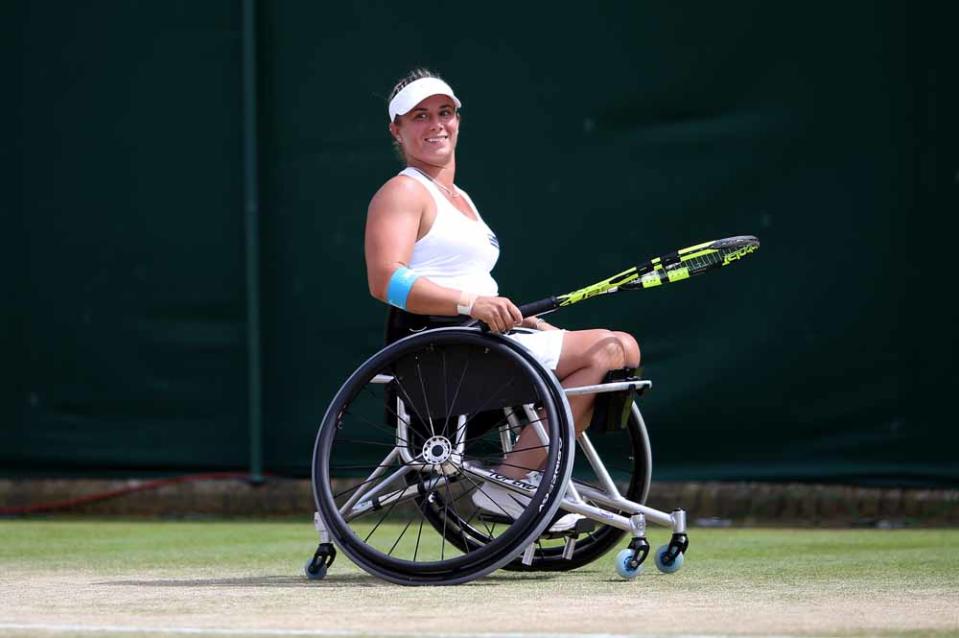
Just 12 days after passing her motorbike test in 2001, Lucy’s life changed forever when she misjudged a corner on a glorious summer day and had a devastating crash.
She said: “I went on a big ride with a friend of mine, as it was a beautiful day. We came up to a corner and I just didn’t make it.
“I don’t remember the accident, but I must have misjudged a corner and I crashed into a post box and telegraph pole. I just remember waking up and saying that I couldn’t feel my legs.”
An ambulance rushed Lucy to the Royal Hampshire County Hospital in Winchester and she was later transferred to Salisbury Spinal Unit for specialist care, where doctors broke the catastrophic news that she had severed her spine, meaning she had lost movement from below her chest.
“I struggled a lot with my identity after the accident,” she said.
“I lost my confidence. I would just go to the shops and it would feel like everyone was staring at me. It was a really hard time. I had lost my sparkle.”
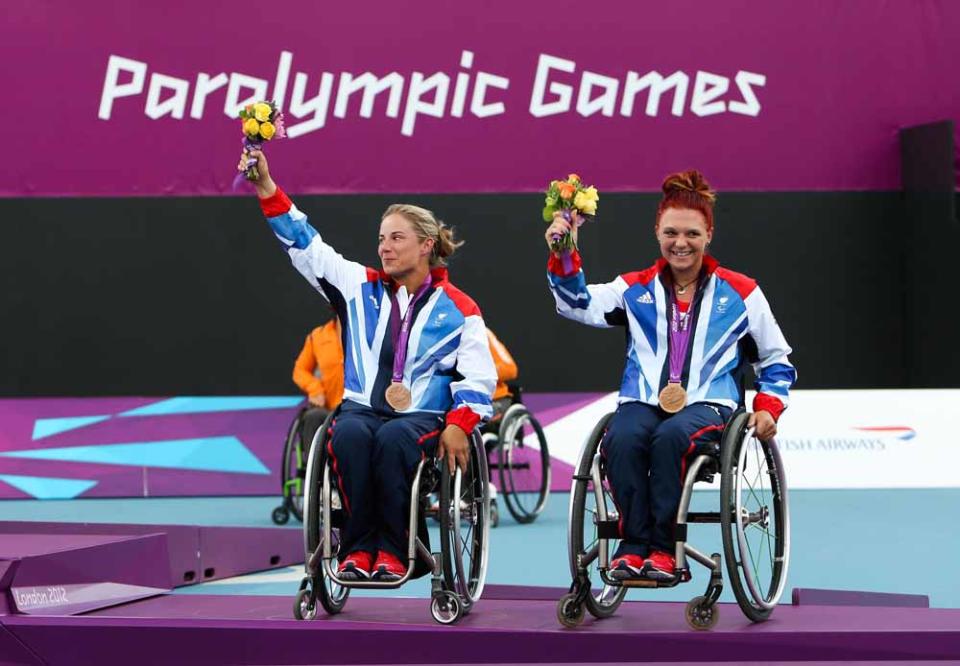
She added: “Back then, the internet wasn’t really a thing and I didn’t have a lot of role models to inspire me. ”
Competing at regional badminton tournaments as a teenager, Lucy had always been sporty.
She said: “At 16, I represented the Senior County First Team in the Inter-Country competitions.”
It's a 5⃣th #Wimbledon title and 1⃣2⃣ th Grand Slam 🏆@Jordanne_Whiley & Yui Kamiji beat @lucy_shuker & Kgothatso Montjane in a historic final featuring the two Brits.#BackTheBrits #wheelchairtennis pic.twitter.com/NNkFnDPC6i
— Wheelchair Tennis (LTA) (@WChairTennisGB) July 10, 2021
She added: “I had played in a few tournaments around the country and had good hand eye coordination.”
It was her sporting background that led celebrated Paralympic star Peter Norfolk to suggest that she tried wheelchair tennis like him when she bought a second-hand wheelchair from his accessibility company 12 months later.
It was an inspirational meeting for the young woman – filling her with hope and giving her something to aim for.
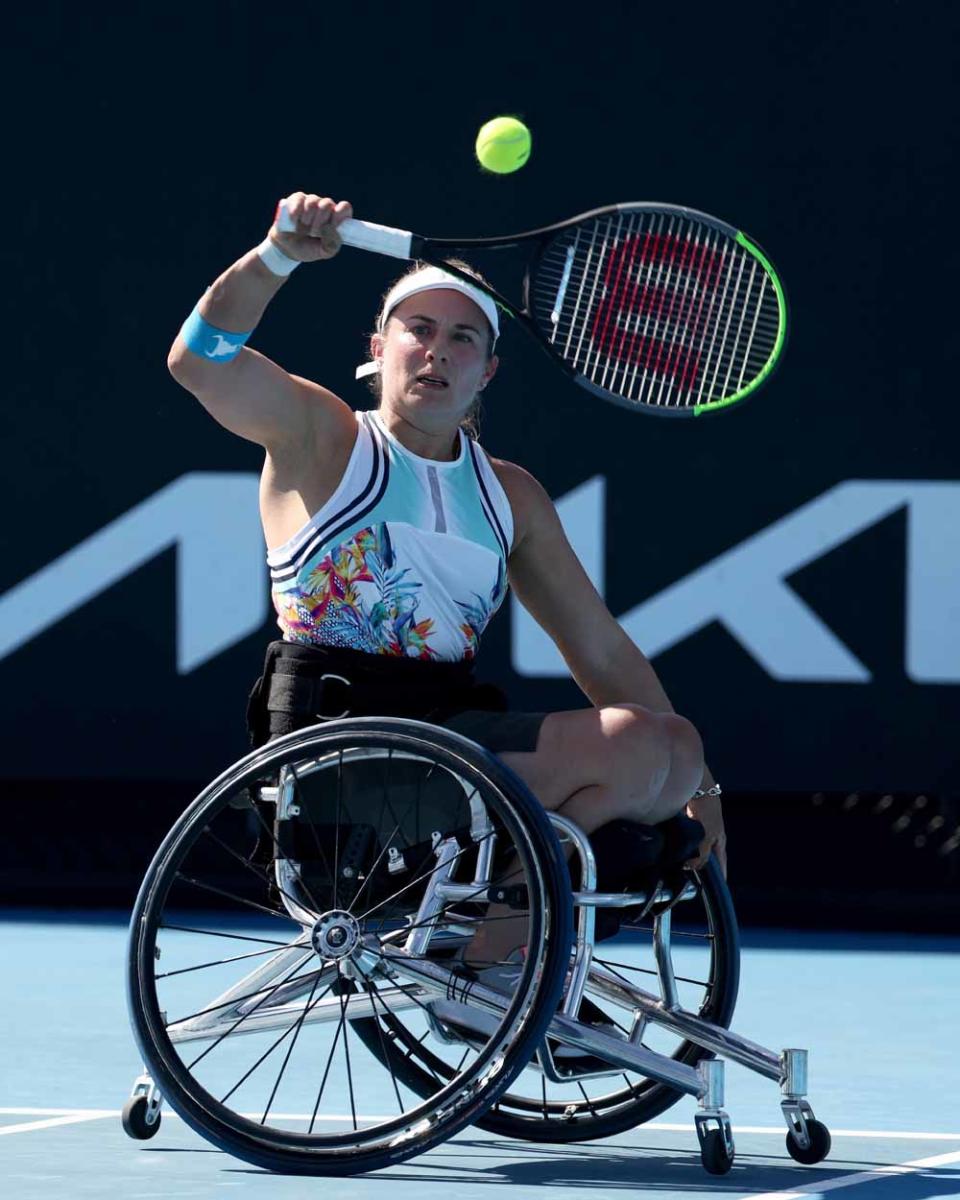
She said: “When Pete suggested I try tennis, I decided to give it a go and I haven’t looked back since.”
But learning to play tennis was not a bed of roses for the disabled star.
She said: “As a T4 paraplegic, I can’t move my abdominal muscles, so it is a lot harder. But after finding tennis I found myself again. My grandma would say I got my ‘Lucy sparkle’ back.”
An injury to the nerves of the T4 spinal bones, T4 paraplegia is the loss of sensation and function of the lower body.
As she tried to progress with the sport, Lucy was met with a wall of opposition.
She said: “I had good hand eye coordination because of playing badminton, but I was terrible at moving and pushing the chair at first.
“I quickly realised I did not fit the ‘ideal’ disability level to compete.”
She added: “It was a lot harder for me, as with wheelchair tennis you need a lot of core strength and the top girl players had more movement than I did.
“Trainers kept telling me I was too disabled to play professionally. But I refused to let it deter me. Tennis was giving me a new lease of life and I was finally feeling like myself again.”
And, to her delight, she caught the eye of a coach for the National Wheelchair Tennis Programme – and has never looked back.
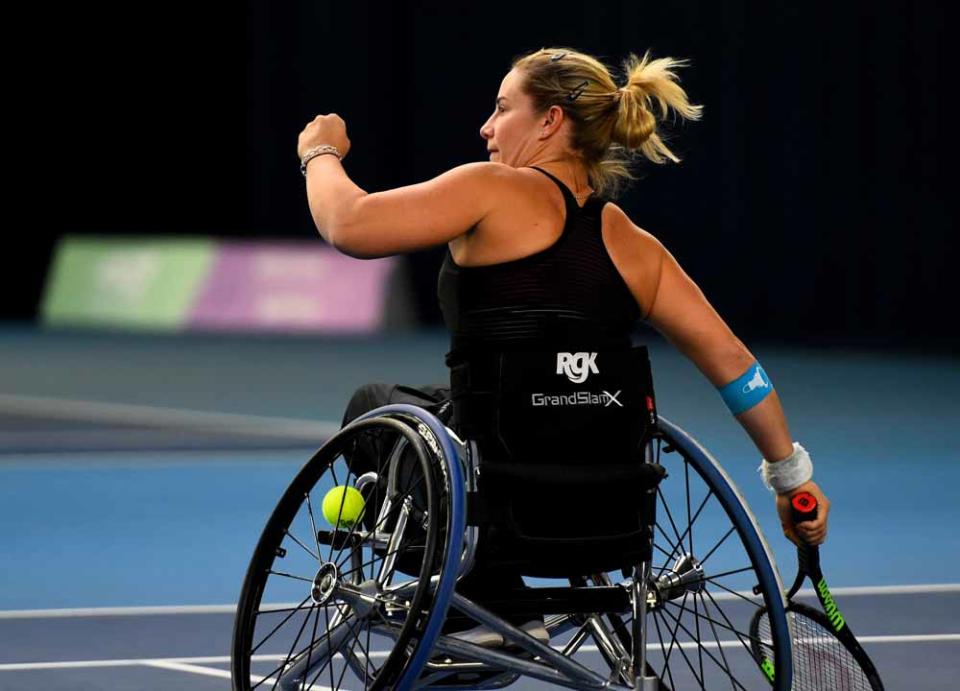
She qualified for the Paralympic Games in Beijing, China, in September 2008.
“It was an amazing feeling, representing Great Britain. It’s a lot of pressure but the crowd are amazing,” she said.
“I brought home a bronze medal in my second Paralympic games in London for the doubles. Then, I did it again in Rio, which was brilliant.”
She added: “I’ve now qualified for my fourth Paralympics, as well as making it to the Wimbledon doubles finals this year.
“People thought I couldn’t do it, but I’ve now been playing tennis for nearly 19 years.”
Supported by the UK sport with the National Lottery, the Lawn Tennis Association (LTA) and Path to Success, a charity that helps GB female athletes in disability sport on their path to the Tokyo Paralympics and beyond, she cannot wait to join the national team again.
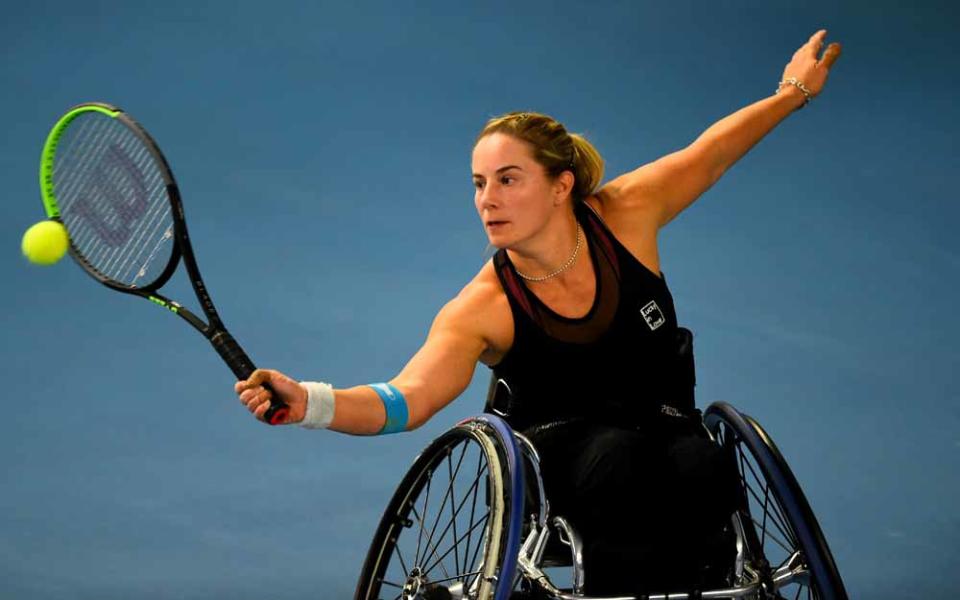
Covid-19 has meant her training has mainly taken place at a local school tennis court, but she now feels ready to wheel herself into the spotlight – although the Ariake Tennis Park arena in Tokyo is unlikely to be filled with spectators, because of pandemic restrictions in Japan.
“It’s a lot of pressure, as the world is watching you at the Paralympics, but to enter an arena without an audience is going to be completely different,” she said.
“I’m glad it’s not my first Paralympic games, or I might be a bit flustered.”
The Paralympics will be in Tokyo, Japan, from August 24th - September 5th
This will be the 15th Summer Paralympic game since they began in 1960
She added: “I’ve gone from competing in 25 tournaments a year to not being sure if I could attend any.
“It’s been tough but, in a way, the new training regime has been refreshing.
“I’ve been able to concentrate on my game more and have been learning to just roll with whatever ball comes my way.”
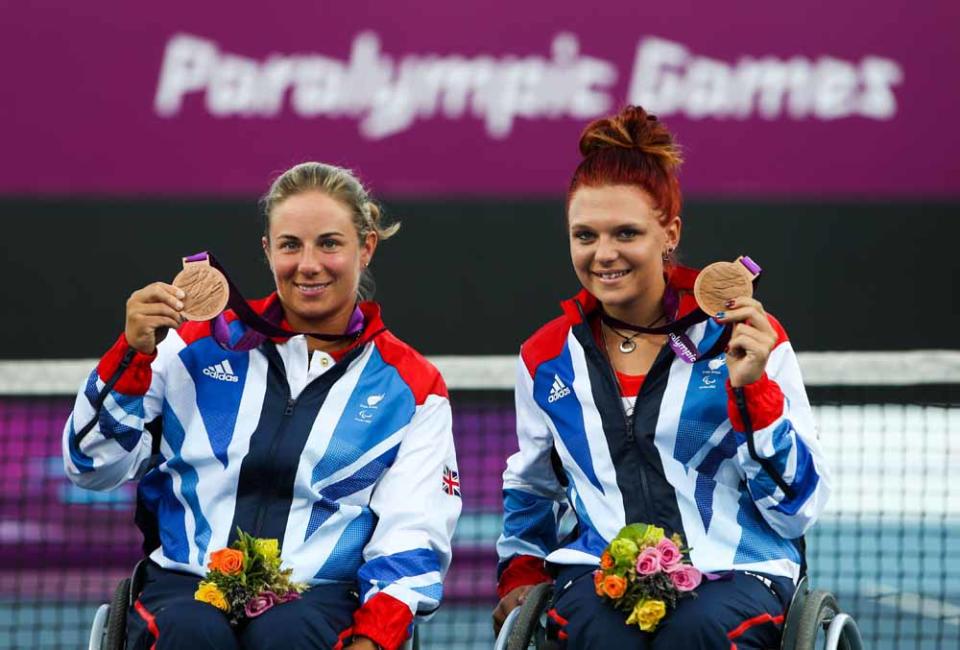
She added: “I am definitely going to incorporate my Covid training into my normal regime.
“But, for now, I just have one thing in mind – and that’s going for gold!”
*For more information about the charity helping Lucy, see www.pathtosuccess.org.uk
END

 Yahoo News
Yahoo News 
